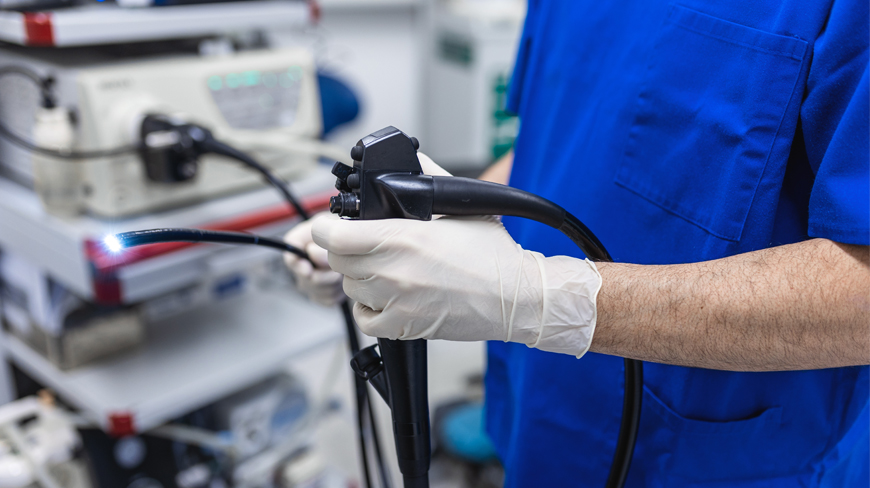What Is a Colonoscopy Doctor Called?
Everyone needs to have a colonoscopy at some point. In fact, most people will have at least 2-3, with the first one beginning at age 45. A colonoscopy examines the inner lining of the large intestine and rectum. It’s most commonly done to screen for and prevent colorectal cancer.
The doctors who perform this procedure and help people with their digestive tracts are gastroenterologists.
What is a Colonoscopy Doctor Called?
A colonoscopy doctor is called a gastroenterologist. — a doctor who specializes in all things related to the digestive system.
Gastroenterologists are trained to identify, manage, and treat disorders from the esophagus to the rectum, including the liver and the gallbladder. Often, colonoscopies are performed as part of comprehensive digestive health care.
Gastroenterologists tackle a broad spectrum of gastrointestinal (GI) disorders and frequently treat chronic or debilitating conditions, including:
- Irritable bowel syndrome (IBS): marked by abdominal pain and irregular bowel movements
- Gastroesophageal reflux disease (GERD): where stomach acid frequently flows back into the esophagus, causing discomfort and potential long-term damage to the lining of the esophagus
- Inflammatory bowel disease (IBD): diseases that cause chronic inflammation of the GI tract, like ulcerative colitis and Crohn’s disease
- Celiac disease: an autoimmune response to gluten that damages the small intestine
- Gallbladder disease: including gallstones, that affect digestion and cause pain
- Liver disease: conditions like hepatitis and fatty liver disease
An Expert in Diagnostic Techniques
Gastroenterologists use a variety of diagnostic methods to assess and manage GI conditions. Two of these procedures utilize a flexible tube equipped with a light and camera, called a scope, to examine the lining of the digestive tract.
Upper Endoscopy
Upper endoscopy (EGD) is a technique where the gastroenterologist inserts the scope into the throat, allowing them to observe the esophagus, stomach, and the beginning of the small intestine. Endoscopy is instrumental in diagnosing conditions such as:
- Ulcers
- Gastritis
- Esophageal abnormalities like narrowing or strictures
It can also be used to take biopsies or treat specific conditions directly.
Colonoscopy
This procedure involves using a similar scope, which is carefully guided through the entire length of the colon.
A colonoscopy is primarily used for cancer screening, particularly to detect early signs of colorectal cancer and polyps. Performed under sedation to ensure your comfort, a colonoscope is carefully guided through the colon, transmitting images back to a monitor for review by the gastroenterologist.
A colonoscopy is performed to identify and remove polyps, which are small growths that can develop into cancer. It’s a vital procedure that can prevent colon cancer.
A colonoscopy is also used to investigate GI symptoms like:
- Unexplained changes in bowel habits
- Rectal bleeding
- Abdominal pain
The Value of GI Health
Gastroenterologists do more than diagnose and treat disease. They are integral to the overall management of digestive health. A gastroenterologist will:
- Provide crucial guidance on lifestyle and dietary modifications to improve digestive health.
- Prescribe medications to alleviate symptoms
- Perform surgical interventions when necessary.
When To See a Gastroenterologist
If you experience signs of digestive distress, it may be time to seek the expertise of a gastroenterologist. These signs could include:
- Chronic or severe pain in the abdomen that doesn’t improve with over-the-counter medications.
- Pain or significant difficulty when swallowing food or liquids
Frequent or severe heartburn that doesn’t respond well to over-the-counter antacids, possibly indicating GERD.
- Changes in bowel movements, including constipation or diarrhea, that lasts more than a few days.
- The presence of red blood or a black, tarry appearance in stool which can indicate bleeding in the GI tract.
- Losing weight without trying which can be a sign of inflammatory bowel disease or, more rarely, cancer.
- Yellowing of the skin or eyes, indicating liver problems.
- Persistent nausea and vomiting.
- Anemia, which could be caused by internal bleeding in the GI tract.
Gastroenterologists offer the knowledge and treatments necessary to improve and maintain digestive health, whether it’s chronic discomfort, nutritional concerns, or preventive care. Their work in early disease detection, mainly through colonoscopy, is critical in preventing conditions like colon cancer.
If it’s time for your colonoscopy or you’re experiencing concerning digestive symptoms, it’s time to visit a gastroenterologist.
Don’t delay – schedule an appointment today!
Request Appointment
Related:


